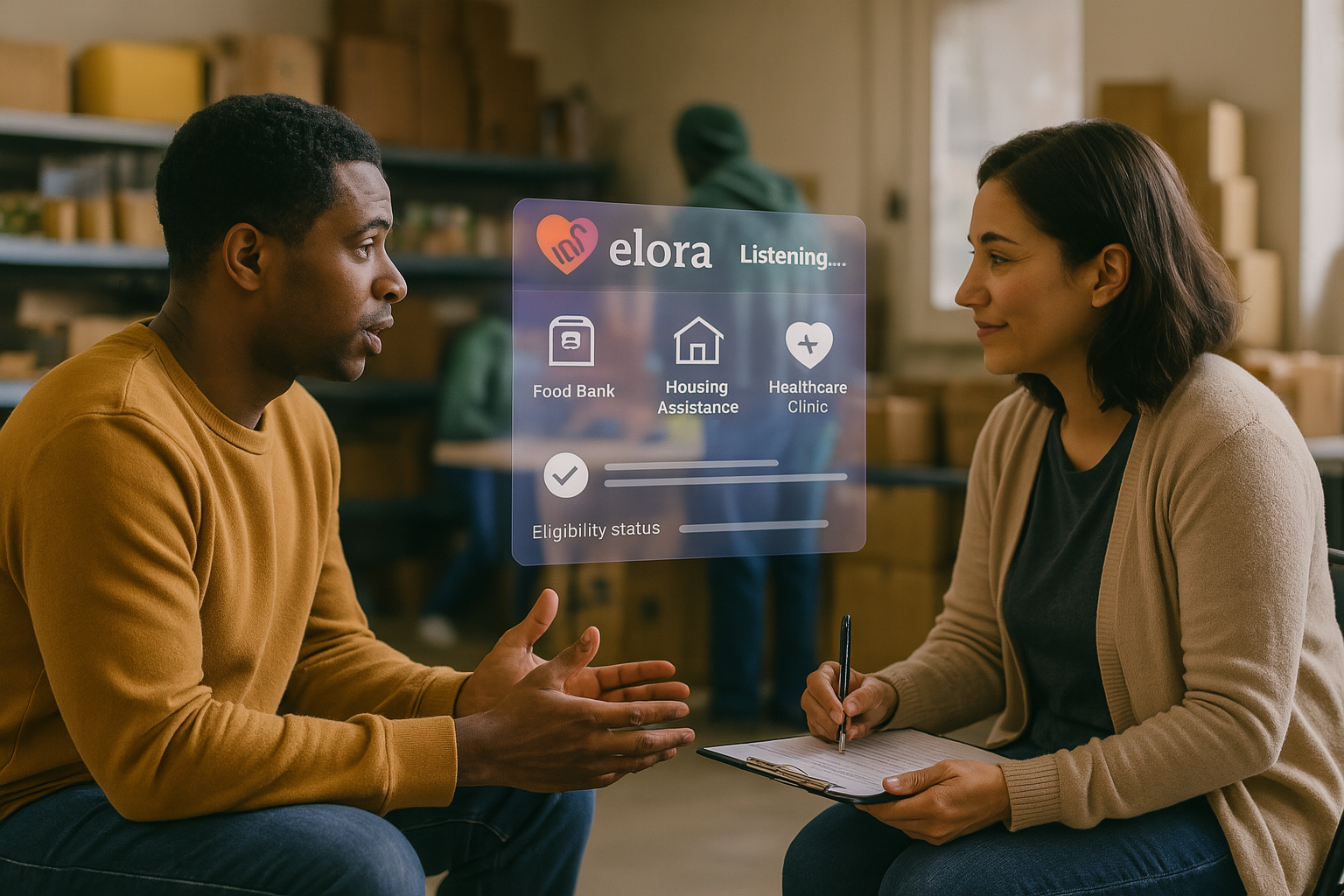
The Copilot for Caregivers
Elora captures concrete real-time needs, handles the research, verification, and documentation, and surfaces support, so that you can focus on connection and share resources in real-time.
We need more efficiency.
"Human beings are essential to care."
Basic Note Takers
Just transcribe what you say—they don't understand what your client actually needs or how to help.
Resource Databases
Give you lists—but not whether programs are actually available, credible, or right for this specific person.
Existing Client Tools
Help you organize work—but can't systematically manage all content or figure out what work matters most.
“You need a copilot that enhances caregiver efforts with tools that that amplify Care relationships”
You Focus on the Conversation
Elora finds and verifies resources
Relationship-focused documentation
How Elora Works?
The Copilot Difference:
Before Elora:
With Elora

Built for the Art of Caregiving
" We elevate proven caregiving practices, not replace them "
Active Listening Enhanced
You focus completely on the client. Elora tracks themes, motivations, care opportunities, and understands real life context.
Learns from Your Community
Elora values the institutional knowledge of your community and captures the nuance needed to successfully utilize a resource.
Preserves Human Connection
AI handles the research, you handle the relationship. Both caregiver and client walk away feeling connected, valued and in partnership.
Turns Compliance Into Opportunity
Documentation that tells compelling client stories for funders and captures the full scope of your work, making sure all care is compensated when possible.
For Every Type of Caregiver…
“Focus on health, not hunting for resources.”
Community Health Workers
- Address social determinants without breaking conversation flow
- Document complex interventions that show your impact
- Build lasting relationships that improve health outcomes
“Turn crisis management into stability planning.”
Case manager
- See family dynamics and intervention opportunities
- Connect immediate needs to long-term stability resources
- Document trauma-informed approaches that demonstrate value
“Practice the profession you trained for.”
Social Workers
- Spend time building therapeutic relationships, not researching programs
- Integrate clinical insights with community resource knowledge
- Align clinical progress and social interventions
“Coordinate care, don't just track tasks.”
Care Coordinators
- Understand care pathways that actually work for your population
- See patterns across clients that inform program improvements
- Connect individual success to population health outcomes








